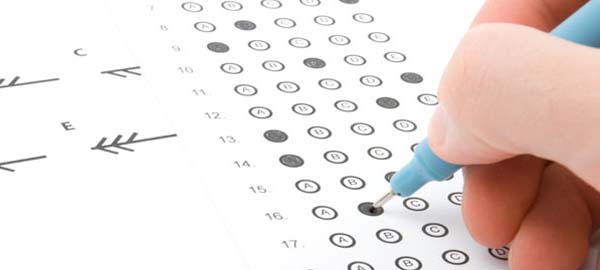About Psychosis
The term „psychosis“ summarises mental disorders that particularly present with profound cognitive, affective and behavioural symptoms.
Psychotic disorders can be linked to diverse causes: physical diseases, drug use, depressive or manic illnesses. They can also occur as independent disease patterns – one subform is schizophrenia, which again shows various courses of disease. Media depicts schizophrenia frequently as split personality, as Dr. Jekyll and Mr. Hyde – which is not true. The primary symptoms are disorders of cognitive processes on the one hand, and severe disturbances and disorders concerning energy and motivation, feelings and interests on the other hand.
Need for an early detection of psychosis
Psychotic disorders predominantly affect adolescents and young adults aged from 15 to 35 years. The majority of patients (75-90%) suffer from attenuated psychotic and cognitive symptoms prior to the onset of the frank disease, which are therefore called ‚prodromal symptoms‘. Using these prodromal symptoms, trained psychologists or physicians can identify persons at an elevated risk of developing psychosis and hence can commence treatment. Through such an early intervention in the prodromal phase, it may be possible to prevent or at least to delay and attenuate the onset and course of psychotic disorders.
Unfortunately until to date, this therapeutic ideal is rarely achieved. The majority of patients with psychotic disorders loose several years from the first appearance of symptoms to ultimately obtaining the adequate therapy from professional care-givers. Typically, in the course of such ‚odyssey‘ inexplicable tensions arise between the affected persons and their families and friends, as well as their educational and vocational environment. Within a vicious circle, these tensions fuel the deterioration of prodromal symptoms until the at-risk persons develop a frank psychotic illness.
When early signs of psychosis are present, an efficient and early diagnosis allows the initiation of therapy. Directed and adjusted therapy for individual risk of disease requires an appropriate evaluation of this risk on an individual basis. However, there are no diagnostic methods which ensure this evaluation so far. It is the rationale behind our EU-supported early recognition study PRONIA to close this gap. The aim of the project is the development of reliable diagnostic methods based on genetic, imaging-based, neurophysiologic and clinical information. PRONIA will subject these methods to a strict examination to ensure feasible results concerning an individual risk assessment. Consequently the project serves a valuable contribution in the sense that people with an increased risk of developing a disorder will be identified and treated at an early stage which subsequently enables the future repression of a chronic progression of psychotic disorders.
Psychosis: Causes and Risk Factors
As it is the case for most mental illnesses, it is assumed that psychoses are due to diverse morbid influences. The following list covers he most common and important risk factors.
Familial Predisposition:
The probability of developing a psychosis increases up to 8-10%, if first degree relatives suffer from psychosis; for similar twins the risk is even higher. It is possible to identify particular genes, which can encourage the development of a psychotic disorder.
Developmental Disorder:
Disordered fetal cerebral maturation (e.g. caused by an infection of the mother during pregnancy or by birth complications) increases the risk of disease.
Toxic Substances and Drugs:
The use or abuse of substances and drugs significantly increases the risk of developing a psychosis. For example, studies show that using cannabis doubles or trebles risk of disease.
Stress:
In conjunction with the above listed risk factors, stress or unhealthy life-style habits lead to higher risk of developing a psychotic disease.
Changes in the Brain:
In addition, recent research has identified pathological changes in the brain, which encourage the development of a psychotic disorder. These include enlarged ventricles, as well as a reduced volume in the frontal brain area, in the amygdala, in the hippocampus, in the basal ganglia and in the cerebellum.
Symptoms
Symptoms of the prodromal phase
In 75 to 90% of cases, a so-called prodromal phase can be detected. This stage occurs years prior to the onset of a psychotic disease and manifests in diverse non-specific symptoms. At this point a thorough and in-depth diagnostic investigation is essential in order to discriminate the prodromal phase of psychosis from other mental-health problems as depression or a pubertal imbalance. The symptoms are the following:
- Weak or lack of concentration and memory
- Depressive mood, dysphoria
- Lethargy, lack of energy
- Insomnia
- Irritability and mistrust
- Social withdrawal
- Neglect of personal hygiene
- Formation of weird concepts and ideas
- Drop in performance
Symptoms of psychotic illness
The symptoms of psychosis are generally divided into two groups - positive and negative (or deficit) symptoms.
Positive Symptoms:
The occurrence of positive symptoms leads most of the time to hospitalisation.
- Disturbances and changes of thinking: Patients cannot follow a conversation anymore, the thoughts and arguments of the patients are hardly understandable.
- The patients believe that their thoughts are being controlled by forces or by other individuals
- The patients have the feeling, that their environment is externally controlled.
- The patients believe that they are being observed or followed.
- The patients are convinced, that environmental cues are directed towards themselves (e.g. "the TV presenter addresses me directly")
- Perceptual disturbances/hallucinations (auditory hallucinations are very common, the patients hear voices from inside)
Negative Symptoms:
The occurrence of these symptoms leads to an increasing social withdrawal and a decreasing professional capabilities.
- Restrictions in the intensity of emotions
- Restrictions in the range of emotions
- Lack of energy
- Decrease of mental performance
- Joylessness, lack of interest








